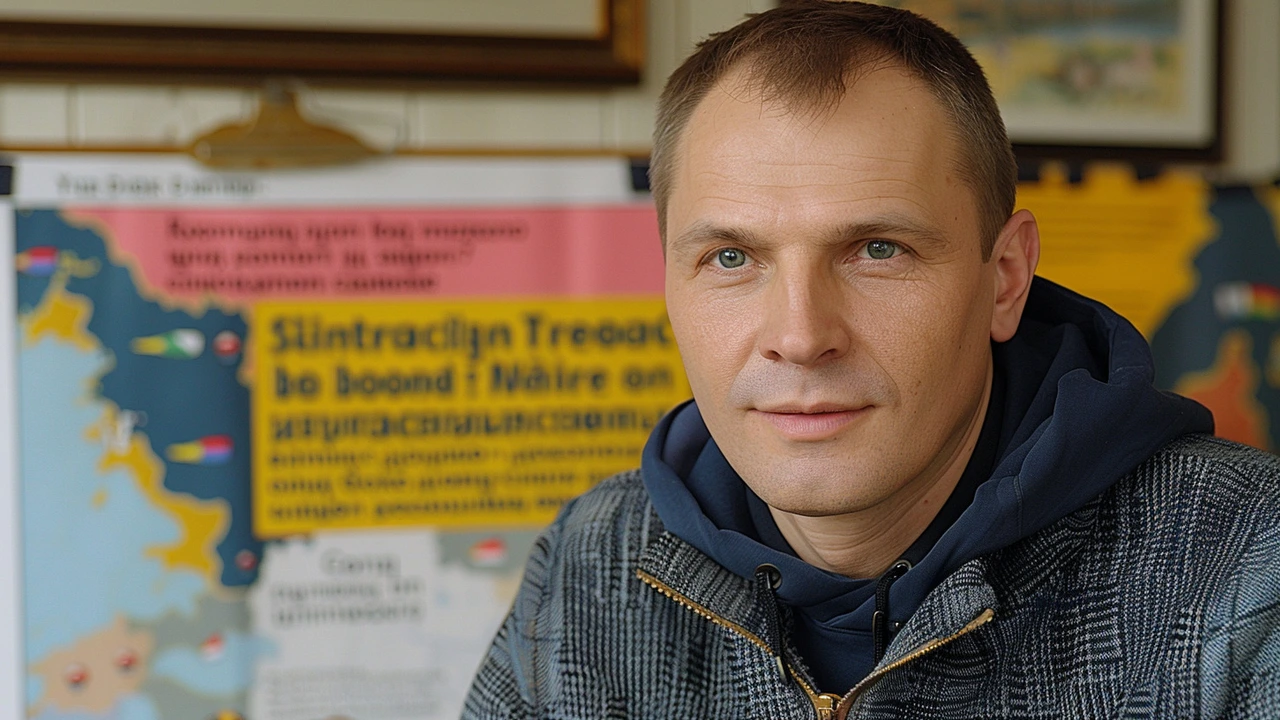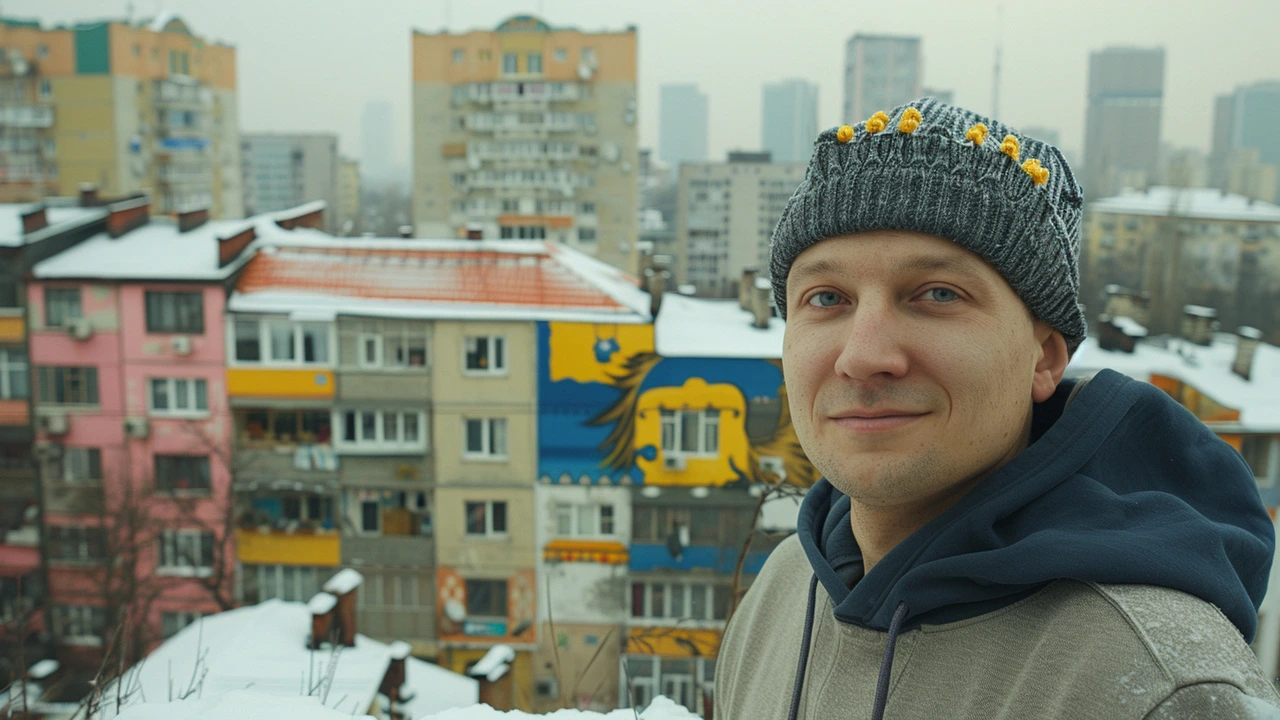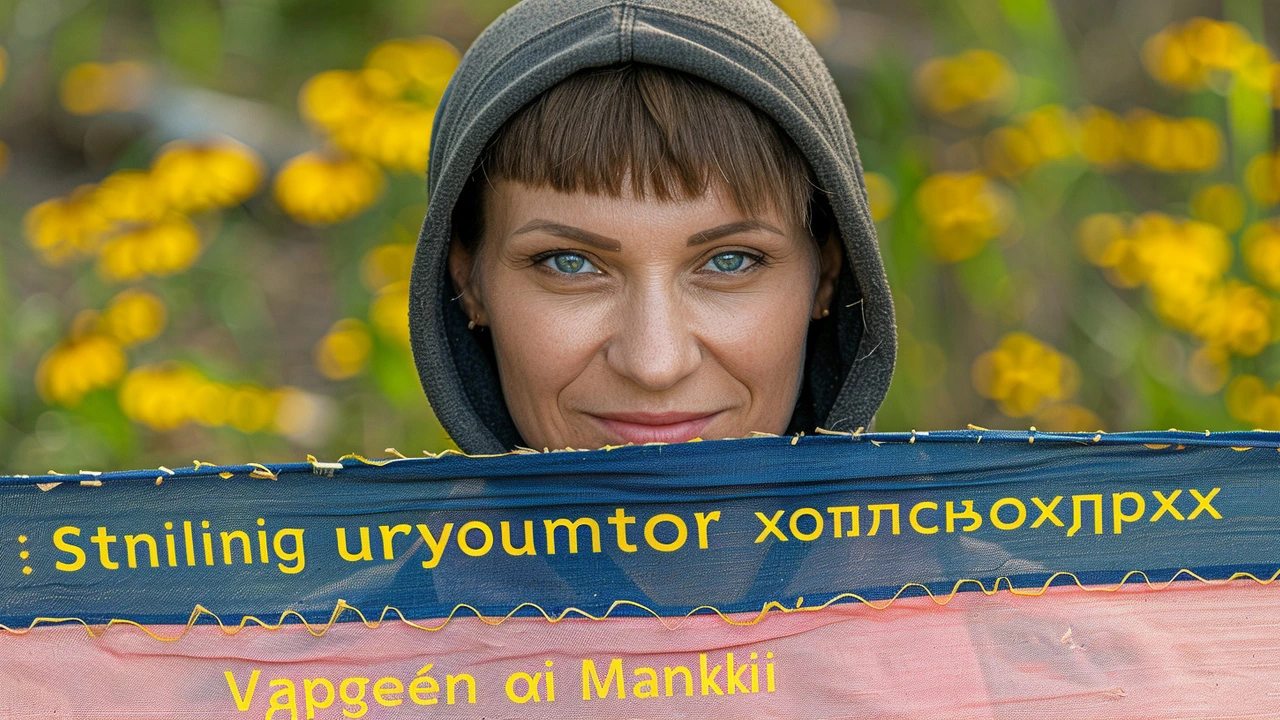Economic Challenges in War-Torn Ukraine
Ukraine has faced incredible challenges due to the ongoing conflict with Russia. The resilience displayed by the country is nothing short of remarkable, but the war effort has had a daunting impact on public finances and growth prospects. The focus now is to achieve significant economic advancements within a short span of two to three years. However, this journey is filled with hurdles and requires strategic planning and collaborative efforts at both national and international levels.
The key to overcoming these hurdles lies in harnessing the untapped potential within the country's borders while creating favorable conditions for migrant returns. This dual approach aims not only at bolstering the economy but also at stabilizing the demographic shifts that have occurred due to the conflict.
Fortified Economic Clusters
One of the innovative strategies proposed to boost Ukraine's economy involves establishing 'fortified economic clusters' in western and southwestern regions. These clusters are envisioned as secure zones for uninterrupted production, shielded by geographical distance and modern air defense systems. The geographical advantages of these regions make them suitable for sustained economic activities even amidst ongoing conflict in other parts of the country.
The creation of these clusters is not just about physical infrastructure. It's about building ecosystems that ensure reliable energy and raw material supplies. The secure environments in these areas can attract both domestic and international investors who are often wary of conflict zones. The assurance provided by comprehensive war insurance policies further adds a layer of security, incentivizing investments which are crucial for economic revival.
Attracting Investments
Investment is the lifeline of any economic growth strategy, and Ukraine’s approach involves a combination of domestic private investment and foreign direct investment (FDI). The integration of FDI is vital as it brings not only capital but also expertise, technology, and the ties to global markets that Ukraine needs. The European Union (EU) stands out as a significant ally, not just as an investment source but also as a destination for the output produced in these clusters.
The EU’s role extends beyond economic support. Ukraine’s potential EU membership provides a credible institutional reform anchor, drawing parallels with Poland’s post-accession economic transformation. This potential membership offers a roadmap for reforms that ensure transparency, good governance, and adherence to European standards, further boosting investor confidence.

Encouraging the Return of Migrants
Migrants who left Ukraine due to the conflict represent a vital human resource whose return could substantially benefit the economy. The policies aimed at encouraging their return are multifaceted, focusing on creating job opportunities, providing adequate social infrastructure, and ensuring a secure living environment. These efforts are crucial for reversing the brain drain and demographic imbalances caused by the war.
Moreover, the social and cultural reintegration of returning migrants needs careful handling. It’s not just about jobs; it’s about rebuilding communities and fostering a sense of normalcy and hope amidst the ongoing conflict. The fortified economic clusters can play a significant role in this process by serving as hubs where returning migrants can find employment, rebuild their lives, and contribute to the nation's growth.
Comprehensive War Insurance Policies
One of the standout features of the proposed strategy is the introduction of comprehensive war insurance policies. These policies are designed to mitigate the risks associated with investing in a conflict zone. They offer a safety net that reassures investors of the protection of their assets and investments. This assurance is pivotal in attracting both domestic and foreign capital, which is essential for the development of the fortified economic clusters.
The insurance policies would cover a range of risks from physical damage to disruption of operations, providing a holistic safety net for investors. This approach not only boosts investor confidence but also ensures the sustainability of economic activities within the clusters, even in the face of ongoing conflicts.
Reliable Energy and Raw Material Supplies
The success of the fortified economic clusters hinges on the availability of reliable energy and raw material supplies. Energy supply chains need to be secure and resilient to ensure uninterrupted production. This may involve diversifying energy sources and securing supply routes that are less vulnerable to conflict-related disruptions.
Similarly, sourcing raw materials locally and internationally requires strategic planning and robust logistics networks. Ukraine’s rich natural resources can play a crucial role, but tapping into these resources safely and efficiently is key. Additionally, building partnerships with neighboring countries for raw material supplies can further secure the resource base needed for the economic clusters.

Global Market Access
Having access to global markets is essential for the economic clusters to thrive. The EU plays a crucial role in this aspect, serving as a significant market for the output produced. Trade agreements, favorable tariffs, and streamlined customs processes are essential to facilitate smooth export operations. Ukraine’s potential EU membership could expedite these processes, integrating Ukraine more deeply into the European economic fabric.
Beyond the EU, exploring markets in Asia, Africa, and the Americas can diversify Ukraine’s trading partners and reduce dependency on any single market. This diversification is crucial for long-term economic stability and growth.
The Importance of Institutional Reforms
While the physical and economic infrastructure is vital, institutional reforms form the bedrock of sustainable growth. Transparency, good governance, and adherence to international standards are essential to build a robust economic foundation. Ukraine’s potential EU membership offers a credible pathway for these reforms, much like Poland’s transformation post-EU accession.
These reforms include judicial reforms, anti-corruption measures, and bureaucratic efficiency that not only attract investors but also enhance the overall business environment. The institutional reforms are a long-term strategy that complements the immediate economic measures, ensuring that Ukraine’s growth is sustainable and inclusive.
Conclusion
The road to economic recovery and growth in Ukraine amidst an ongoing conflict is fraught with challenges. However, with strategic initiatives like the creation of fortified economic clusters, comprehensive war insurance policies, reliable energy and raw material supplies, and a strong focus on institutional reforms, there is a pathway to success. The return of migrants and the influx of both domestic and foreign investments can catalyze this growth, stabilizing the economy and setting Ukraine on a path to long-term prosperity.
The resilience and determination of the Ukrainian people, combined with supportive international partnerships, can transform these strategies into reality, ensuring that Ukraine not only survives but thrives in the coming years.


Author
Ra'eesa Moosa
I am a journalist with a keen interest in covering the intricate details of daily events across Africa. My work focuses on delivering accurate and insightful news reports. Each day, I strive to bring light to the stories that shape our continent's narrative. My passion for digging deeper into issues helps in crafting stories that not only inform but also provoke thought.